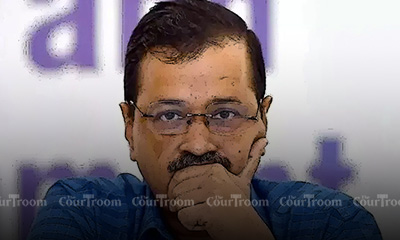The Delhi High Court reserved its verdict on Wednesday in the plea filed by Arvind Kejriwal challenging his arrest by the Central Bureau of Investigation (CBI) in relation to alleged irregularities in the now-defunct Delhi excise policy for 2021-22
Justice Neena Bansal Krishna also reserved her verdict on Kejriwal’s interim bail plea. The court will hear arguments on the main bail plea on July 29.
Kejriwal’s “Insurance Arrest” Argument
Arvind Kejriwal, represented by Senior Advocate Abhishek Manu Singhvi, argued that his arrest by the CBI was an “insurance arrest” intended to prevent him from being released from jail in a related money laundering case initiated by the Enforcement Directorate (ED).
CBI’s Response
CBI Special Public Prosecutor (SPP) DP Singh countered the allegation, stating that the arrest was not an “insurance arrest.” He argued that the Supreme Court granted Kejriwal interim bail for campaigning purposes, and the CBI had the right to arrest him based on emerging evidence.
Background of the Case
Kejriwal was arrested by the CBI on June 26 while already in judicial custody for a money laundering case. He filed two petitions in the High Court, one challenging his arrest and the other seeking bail. Arvind Kejriwal argued that his arrest violated statutory mandates under Sections 41 and 60A of the Code of Criminal Procedure (CrPC).
Court Proceedings
During the hearing, Singhvi emphasized that Kejriwal’s arrest was unnecessary and done to keep him behind bars despite favorable court orders in the ED case. He pointed out that Kejriwal had received three interim orders in his favor from the ED case, showing he should be released.
The CBI, however, maintained that the arrest was justified and that Kejriwal’s cooperation with the investigation was inadequate. They argued that new evidence had emerged, necessitating the arrest.
Compliance with Legal Provisions
Singhvi argued that Arvind Kejriwal’s arrest did not comply with Section 41 CrPC and Supreme Court guidelines. He criticized the trial court for allowing the arrest without proper notice and hearing.
The CBI responded that they followed legal procedures and that the arrest was necessary for the investigation. They also argued that the High Court should hear the bail plea only if it finds the arrest lawful.
Final Arguments
Singhvi reiterated that Kejriwal met the bail criteria and that his arrest was unwarranted. The CBI emphasized that the High Court should consider the trial court’s familiarity with the case before deciding on bail.
The court will decide on the legality of the arrest and Kejriwal’s bail plea in due course.
Share your news, articles, deals, columns, or press releases with us! Click the link to submit and join our platform today.
Breaking – Supreme Court Grants Bail to Arvind Kejriwal in Delhi Liquor Policy Case


